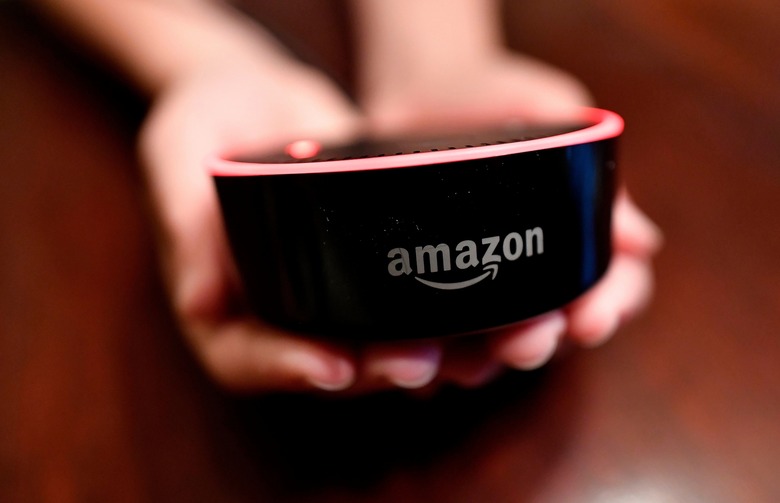This New Alexa Feature Is So Much Cooler Than We Thought It Would Be
We may receive a commission on purchases made from links.
The voice of digital assistants has come a long way from the cold lifelessness manifested in the HAL 9000's infamous apology to Dave, the one in which the AI said: "I can't let you do that."
For several years now, the tech giants behind digital assistants like Alexa, Siri, and Cortana have toiled away at refining the respective personalities of those assistants — hiring writers who can imbue them with jokes, witticisms and other quirks that make a user feel like they're talking to an actual living thing. With a personality, even. Amazon, meanwhile, is pushing things even farther by now programming Alexa to respond with a range of human-like emotions, with the expressiveness including demonstrable excitement, disappointment and more.
[bgr-dont-miss url="" title="" label="" gradient="blackfriday" use_amazon_link=""]
In the US, Amazon explains in a company blog post, Alexa can now respond with either a happy/excited or a disappointed/empathetic tone. "Emotional responses are particularly relevant to skills in the gaming and sports categories," the post notes. "Additionally, you can have Alexa respond in a speaking style that is more suited for a specific type of content, starting with news and music.
"Speaking styles are curated text-to-speech voices designed to create a more delightful customer experience for specific content. For example, the news speaking style makes Alexa's voice sound similar to what you hear from TV news anchors and radio hosts."
Here are some examples from Amazon Alexa's YouTube channel:
Excited Alexa
Disappointed Alexa
Broadcaster Alexa
"The news and music speaking styles tailor Alexa's voice to the respective content being delivered by changing aspects of speech such as intonation, which words are emphasized, and the timing of pauses," Amazon's blog notes about the new speaking styles, including the music style which sounds like a DJ talking about music. "While conducting 'blind listening' tests, the news style was perceived to be 31% more natural than Alexa's standard voice."
It's all about giving the user a more human-like digital assistant, the thinking being that if Alexa sounds more like a human and responds like one, too, the user will feel more comfortable interacting with it and doing so more often. And more usage of Amazon, of course, keeps money flowing into the giant internet retailer's coffers.
